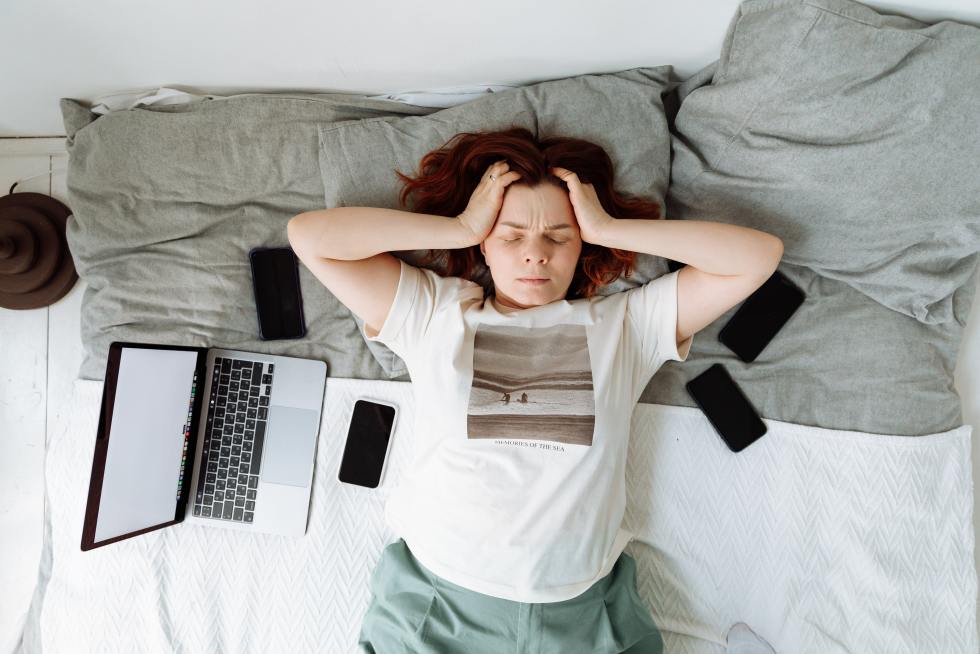
Phones have proved to be essential in improving everyday lives. But can also take your mental health in the wrong direction if you become addicted.
If your daily life revolves around your phone, spending too much time on it can pose a problem in your personal life. The scariest part is, you may not even be noticed when the problems start.
Your mental health should be guarded preciously – read this article to find out if your smartphone usage might be affecting your mental health:
You’re Anxious.
Anxiety is a common effect of smartphone addiction on your mental health.
A study by BMC Psychiatry has shown that anxiety and depression increase as mobile phone usage does.
It could creep up from being away from your phone for a few minutes, or simply a future expectation of new notifications and reactions to your posts or engagement online.
It could even be worse when there are tumultuous situations you get caught up with online, such as cyberbullying.
You’re Distracted
A study showed that the average smartphone user will tap, swipe, and click their smartphone 2,617 times a day. The study also revealed that the top 10% of users do this about 5,427 times a day!
When you get caught up in the distraction of the internet, (especially on your favourite apps) it eats into the productive time meant to be dedicated to your responsibilities.
What can seem like a mere distraction today, might transcend to become a lack of focus tomorrow. An unfocused mind can leave you flustered and anxious while you’re scrambling to pick up the pace.

You‘re Drained
The effects of smartphone addiction and all the emotions that come along with it can be hard on you. It can make you feel drained, scramble your emotions and invade your mental health on a daily.
Recent research by Nottingham Trent University finds that a third of the smartphone notifications we receive worsen our mood. This means even the content we take in constantly can negatively impact our day.
In addition to these psychological consequences, excessive smartphone use may also lead to impaired cognitive function and other mental health issues, with could further affect your physical health.
You’re Stressed
Scrambling to catch up when you’re lacking sleep and behind on your responsibilities after being constantly distracted, can leave you feeling stressed.
Stress greatly impairs your ability to think and actively attend to your responsibilities and relationships appropriately – it’s a slippery slope.
You Feel Sick
Constant phone usage can promote a lack of sleep and encourage a sedentary lifestyle. A study showed that 44% of 18–24-year-olds have fallen asleep with their phone in their hand.
Your physical health can be impacted negatively when hiked with anxiety and stress,
Also, constant phone usage can contribute to headaches, as well as shoulder, neck or back pain, which could in turn make you feel ill in general and slow you down. This feeds back to your mental health and impairs it over time.
A US survey exposed that more than 73% of young adults (under 30) suffer from symptoms of digital eye strain from screen overuse, including dry, irritated eyes, blurred vision, neck and back pain, and headaches.
If you’re constantly feeling sick, and have confirmed that you’re not ill, then you might be dealing with a pile-up of the effects of phone or social media addiction.

Ways to protect your mental health from phone addiction
If you believe your phone addiction is affecting your mental health, you should first, take it easy.
Take a pause, and assess the exact way your smartphone usage affects your mental health. Is it the negative news feed, the toxic posts and online conversations, a scramble to catch up with study/work, or is it simply you not sleeping enough?
Once you figure out what exactly it is, identify the apps you’re addicted to, and take regular breaks from them.
A great way to do this is to use Applatch, a mobile app that allows you to lock addictive apps for a period of time, unable to be accessed unless through an accountability partner.
Also, seek professional help to deal with the mental health effects of your smartphone addiction. It’s never too late to fix whatever damage you feel might have been done.
Conclusion
You deserve a healthier, happier life.
Protect your mental health as you enjoy your favourite tool, and kick smartphone addiction to the curb!
 Applatch
Applatch Applatch
Applatch